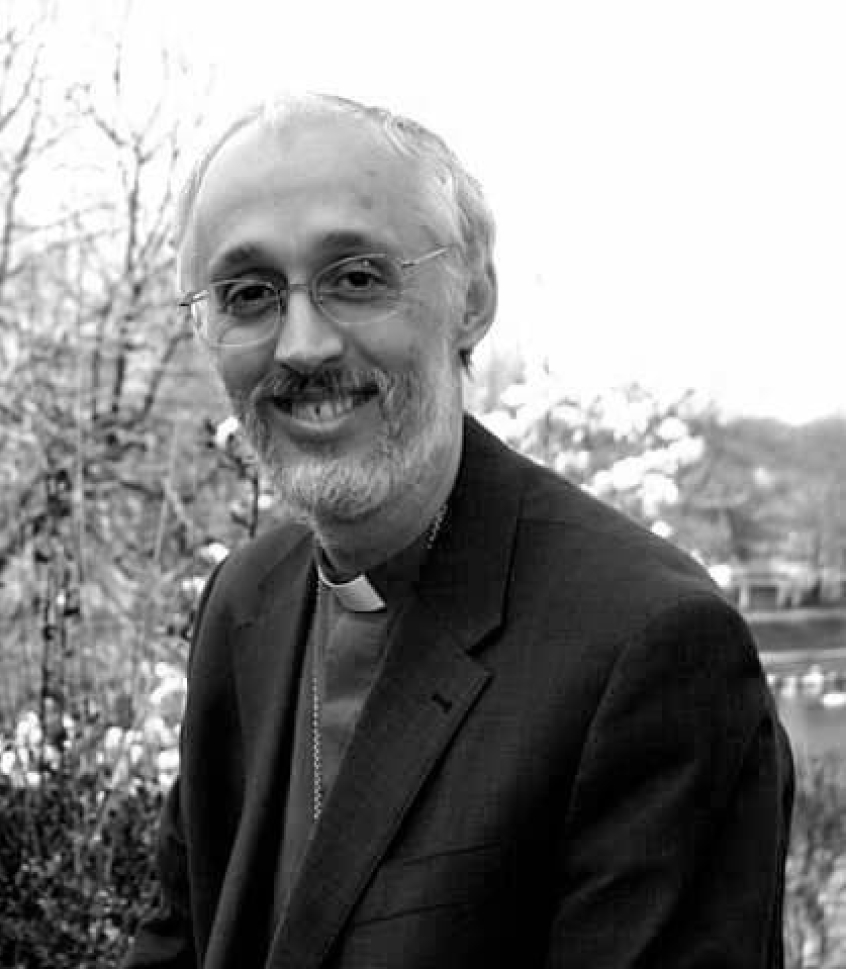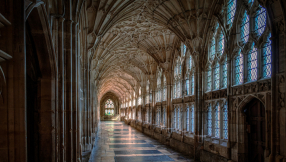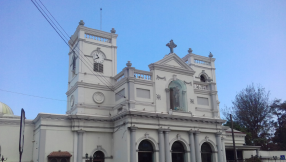The Bishop of Manchester is calling for the Church of England to move forward in its acceptance of gay couples after a report keeping the traditional teaching on marriage was thrown out.
Rt Rev David Walker says the Church must offer gay people 'much, much more than the maximum freedom' recommended in a largely conservative report rejected by its ruling body last week.
In a growing sign senior figures may be moving towards an increasingly liberal attitude towards gay relationships, he said the CofE must be 'purposefully paradoxical'.

In a blog post for ViaMedia.News he wrote: 'Some aspects of change will get ahead of others. Some parts of the church may move faster, further, or at a different angle than their neighbours.
'Messy Church won't just describe a brand of work with children. In many ways we will be more like the pluriform Church of the New Testament, marvellously malleable under the hand of the Holy Spirit.'
He added: 'It opens up the possibility of exploring our prayers, our discipline, our outreach, our ministry and our teaching, and doing so with the expectation that things are going to look significantly different afterwards.'
It comes as the Church hierarchy was thrown into turmoil after the bishops' interim report on sexuality was blocked by the clergy at the recent general synod meeting.
The Archbishop of Canterbury responded to the defeat by calling for a 'radical new Christian inclusion'. He proposed a new teaching document on marriage based on 'a proper 21st century understanding of being human and of being sexual'.
In a letter sent to all members of the synod the Archbishops of Canterbury and York wrote: 'The way forward needs to be about love, joy and celebration of our common humanity; of our creation in the image of God, of our belonging to Christ – all of us, without exception, without exclusion.'
They called for a solution that was 'founded in Scripture, in reason, in tradition, in theology and the Christian faith as the Church of England has received it; it must be based on good, healthy, flourishing relationships, and in a proper 21st century understanding of being human and of being sexual.
'We need to work together – not just the bishops but the whole Church, not excluding anyone – to move forward with confidence.'
In the face of growing calls for the Church to be 'agnostic towards homosexuality', the conservative wing is insisting the time has come for a split.
In a direct challenge to Justin Welby's authority, GAFCON, the influential conservative grouping which boasts support from a number of African leaders, criticised the 'turmoil' in the CofE after the 'almost unprecedented vote against the motion'.
In a statement after the synod GAFCON said: 'Despite its enduring historical symbolism, Canterbury can no longer be the defining centre, but through the GAFCON movement a growing number of faithful Anglicans are now recovering their true identity in the gospel itself as the Bible is restored to its rightful place at the heart of the Communion.'
But Ian Paul, a conservative blogger and member of the Archbishops' Council, said the term 'radical inclusion' doesn't offer any solution to the disagreements and is 'in danger of pushing us into theological incoherence'.
He told Christian Today: 'It seems odd to me that so many are picking up on the term 'radical inclusion'. As Edward Dowler has shown in his careful study, 'inclusion' is actually both a divisive and an incoherent term, and is not a virtue modelled by either Jesus or Paul, who were both surprising in those they counted in but clear about boundaries at the same time.'
He added: 'The House of Bishops stated both that there is no consensus for changing the doctrine of marriage and sexual relationships, and that any formal liturgy of blessing same-sex sexual unions would contradict existing doctrine. If the Church is not going to descend into open warfare, we need to take this view seriously across all the dioceses.'













